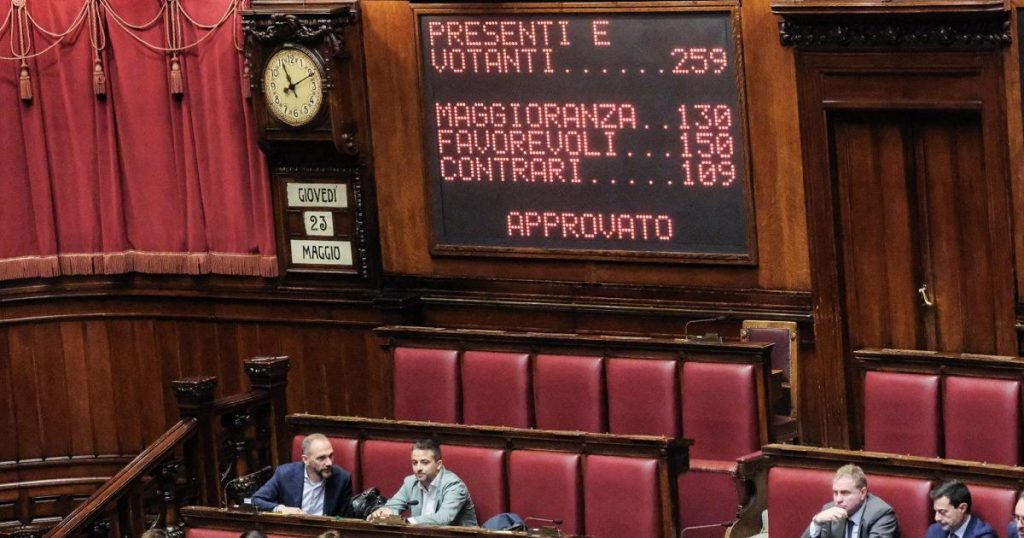With 150 in favor and 109 against, the Chamber of Deputies approved the Superbonus decree, which had already received the green light from the Senate on May 16. The measure, which the government had secured confidence for, became law in a second reading after being approved in Montecitorio without any changes compared to the text passed by the Senate. It was a decree strongly supported by the Minister of Economy, Giancarlo Giorgetti, to curb a situation considered critical for the effects on public finances of the bonus, likened by the MEF official to the Vajont disaster. The decree confirmed the restrictions approved in the Council of Ministers, with the suspension of the tax discount and credit assignment for interventions on certain types of properties, while the possibility remains if the Cila is deposited.
The controversial ‘spreading-deductions’ mechanism over ten years included in Giorgetti’s amendment was the most divisive measure. It pertains to expenses for Superbonus works carried out throughout 2024, from January onwards, before the law converting the decree came into force. An intervention with some retroactivity, albeit limited according to the majority, that sparked strong criticism from Forza Italia, who abstained during the Senate Committee vote. The decree also brings changes for banks and financial intermediaries, with restrictions on how to offset credits related to the Superbonus acquired over the years. Starting from January 2025, they will not be allowed to offset them with social security contributions and Inail contributions.
The decree also maintains a 400 million euro budget to allow earthquake-stricken areas in Abruzzo and Central Italy to continue benefiting from the tax discount and credit assignment. Additionally, a 35 million euro fund for 2025 was established for direct contributions to reconstruction interventions in other earthquake-affected areas, while a 100 million euro fund will support nonprofit organizations for building renovations. The decree also suspends the use of tax credits for building bonuses if the taxpayer owes more than 10,000 euros in unpaid taxes.
Furthermore, there is a provision for municipalities that report irregularities related to the Superbonus. They will receive 50% of the additional amounts collected in definitive state taxes thanks to their intervention. The decree also includes anti-fraud measures for the assignment of Ace credits and Transition 4.0 monitoring. The decree also postponed the implementation of the plastic tax from July 1, 2024, to July 1, 2026, and the sugar tax to July 1, 2025, following bipartisan proposals. The decree also allows municipalities to conduct anti-fraud checks on tax benefits for construction (with the possibility of retaining up to 50% of recovered amounts).


